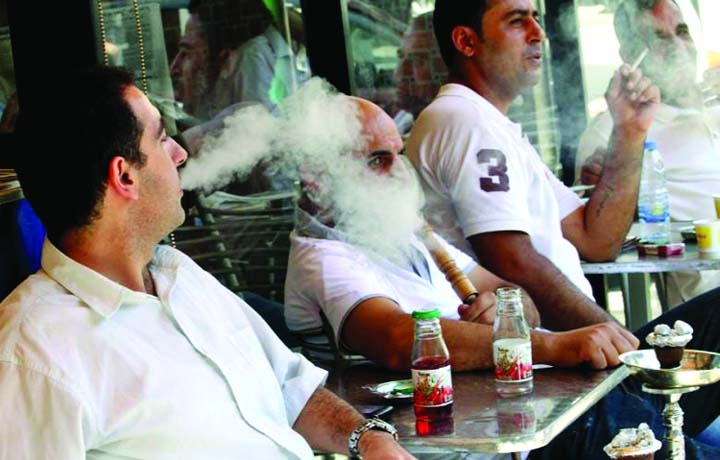
UNB, Dhaka :
Though a provision has been incorporated in the tobacco control law last year banning smoking in public places, many restaurants in the capital still allow smoking creating nuisance for non-smokers.
Hardly aware about the legal provision, restaurant owners and managers allow smoking in their restaurants lest they lose their customers.
Non-smokers, who often turn victims to passive smoking in restaurants, rarely protest the illegal act either for lack of awareness or for fear of ‘unnecessary’ arguments.
According to the Smoking and Use of the Tobacco (Control) (Amendment) Act 2013, smoking in public places, including restaurants that is surrounded by four walls are prohibited and a punishable offence.
There is no instance that mobile courts have punished anyone for smoking inside restaurants since the law was passed in Parliament on May 2 last year. While visiting Hotel Sohagh at Chankharpool in Old Dhaka city last week, the UNB correspondent found two young men smoking in the restaurant.
Asked one of the smokers, Sabbir Hossain, said he does not know it is a violation of law and the hotel authorities did not prevent them from smoking either.
The hotel owner, Monirul Islam, said, “If I would have known it was illegal, I would have asked them to refrain from smoking in my restaurant.”
The same scenario also prevails in many other city hotels and restaurants, including Shah Ali Hotel and Restaurant in Mirpur section-2, Moza Restaurant, Al Hamdani Restaurant and Ma Radhuni Restaurant in Mouchak area.
The owners of all the restaurants said they have no knowledge about smoking prohibition in restaurants.
According to clause 4 (2) of the law, smokers in public places, including restaurants surrounded by four walls shall be fined maximum Tk 300. And in case of repeated violation, the fine will double for each repetition.
If any owner, supervisors and authority or manager of the public place or public transport violate the provision allowing smoking there, s/he shall be awarded maximum TK 500 and in case of repeated violation, the fine will double for repletion as well as per the clause 7 (A) of the law.
Public places are defined as educational institutions, government offices, semi-government offices, autonomous office and private offices, libraries, lifts, indoor workplaces, hospital and clinic buildings, court buildings, airport buildings, seaport buildings, river port buildings, railway station buildings, bus terminal buildings, movie houses, exhibition centres, theatre halls, shopping malls, restaurants surrounded by four walls, public toilets, children parks, fairs and queue of passengers of public transports.
President of Bangladesh Restaurant Owners’ Association and also owner of Malancha Kamaruddin Ahmed Khakan told UNB that some restaurant owners are not still aware of the legal provision that prohibits smoking inside restaurants. “On behalf of our association, we try our best to make people, including the restaurant owners, aware about the law.”
He, however, observed that the achievement is remarkable here as many restaurants have already been declared smoking-free places. “The government should carry out a campaign to raise awareness among both owners and customers to ensure smoking free restaurants, Kamaruddin said.”
Coordinator of the National Tobacco Control Cell under the Health Ministry Aminul Ahsan said police can curb smoking in public places as it is a cognizable offence according to the law. Smoking indoor is more harmful to health than open places, he said.
Technical officer (tobacco control) of the World Health Organisation Dr Mahfuzul Huq said the authorities or managers or owners of the public places should be convinced to stop smoking in public places. “A law has been enacted… now its proper implementation is needed,”

